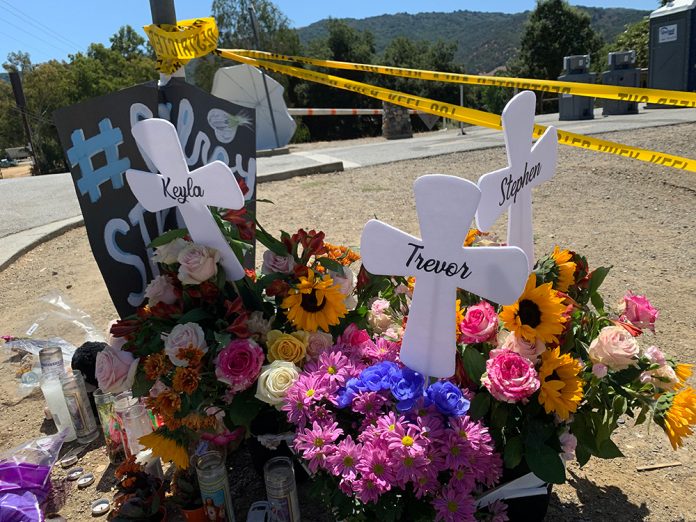Following the shooting at the Gilroy Garlic Festival July 28, San Jose Mayor Sam Liccardo has proposed a series of new municipal gun control measures that would require firearms owners to carry some form of insurance.
While the first-of-its-kind of proposal has gained nationwide attention, South County officials aren’t convinced that it is an effective way to prevent gun violence in their communities.
The Garlic Festival mass shooting took the lives of three young people—Stephen Romero, 6, Keyla Salazar, 13, and Trevor Irby, 25—and injured 13 others. The shooter took his own life in a shootout with police. Romero and Salazar both lived in San Jose.
Liccardo’s proposals consist of mandatory insurance or a fee for gun owners, a firearms and ammunition tax and a bounty program that would allow people to report illegal gun ownership. A liability insurance program for guns would be the first of its kind in the US, and has drawn nationwide attention.
Liccardo’s plan is based on the belief that the liability insurance and regulations he is proposing are a way for municipalities to make meaningful change without the help of the federal government, according to his memo. The money the city would get from the fees, under Liccardo’s plan, would be used to cover the money spent by the City of San Jose on gun violence-related issues or prevention.
The proposals were announced with a press release on Aug. 12, but mayors in surrounding cities have been apprehensive or dismissive about following in the San Jose mayor’s footsteps.
Morgan Hill has a municipal gun control ordinance that is currently being challenged in court. The law in Morgan Hill requires gun owners to report lost or stolen firearms within 48 hours of the discovery to the Morgan Hill Police Department, and requires the safe storage of firearms, with a further definition of a lock container to come back to the council in the coming weeks. The city ordinance also bans high-capacity magazines that hold more than 10 rounds of ammunition.
Despite these laws, Morgan Hill Mayor Rich Constantine said it was up to the federal government to make the changes he believes would make a significant difference in ending the gun violence epidemic.
“I’m not sure exactly how gun liability would decrease illegal use of a gun,” said Constantine. “I don’t understand the rationale, so I guess I would have to get more information.”
Constantine said he’s frustrated with the constant instances of gun violence. Just over a month before the Gilroy shooting, on June 25, there was a shooting in Morgan Hill at the Ford dealership. A disgruntled former employee returned to the dealership and killed two employees—Brian Light and Xavier Souto—and himself.
“It seems to be if you truly want to stop gun violence, then you need to get rid of the thing that is causing this issue,” said Constantine. He called for a nationwide assault weapons ban.
Gilroy has an ordinance for firearms sales that requires a permit and a fee for gun dealers, but there are no additional ordinances regulating guns in the city. Mayor Roland Velasco said he has no plans to introduce any new ordinances in the aftermath of the Gilroy Garlic Festival shooting, and that the city is not planning to implement any new gun codes.
Velasco said he wasn’t aware of the details of Liccardo’s plan. Velasco last week said he was meeting with a mayor from another Bay Area city to discuss the shooting, but he declined to say which mayor.
Hollister Mayor Ignacio Velazquez said he didn’t know enough about Liccardo’s plan to say whether or not the city would consider something similar.
Liccardo’s plans were expected to come in front of the council’s Rules and Open Government Committee. If approved by the committee, the council will hear Liccardo’s gun liability insurance proposal. If the proposal is approved, city staff will come back with an ordinance based on their findings and recommendations.









Policies of fiscal discrimination won’t stand. They are the pointless flailing if a fly snared in a web trying to recoup the cost of spiders.
The problem of this legislature is that it doesn’t touch illegal firearms but it makes the inability to afford a policy with the city as the payee an obstruction to legal gun ownership and makes criminals of those who cannot afford that policy.
It makes accidents profitable, which I suppose is a nice revenue stream, but it doesn’t address willful lawlessness and implements a system of financial segregation.
It ensures that the city makes money when someone is accidentally shot by an unintended discharge, but there is no insurance company that will pay out on willful lawlessness otherwise why haven’t we required people to carry incarceration insurance to pay the salaries of police officers if they are arrested?